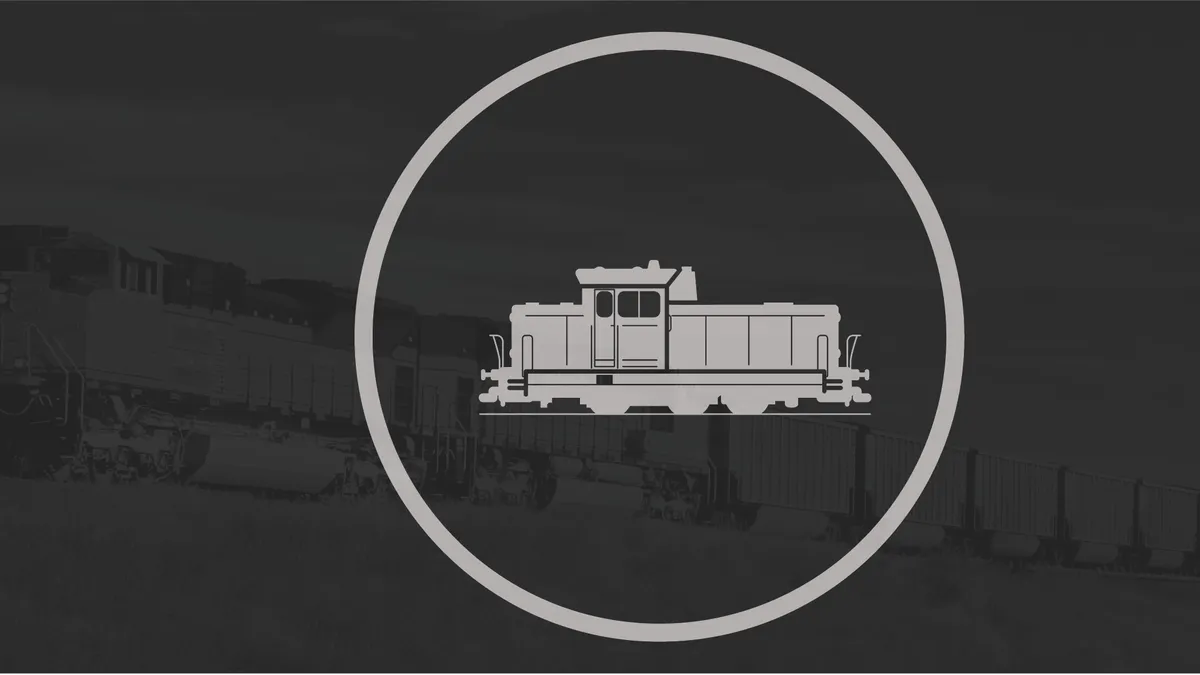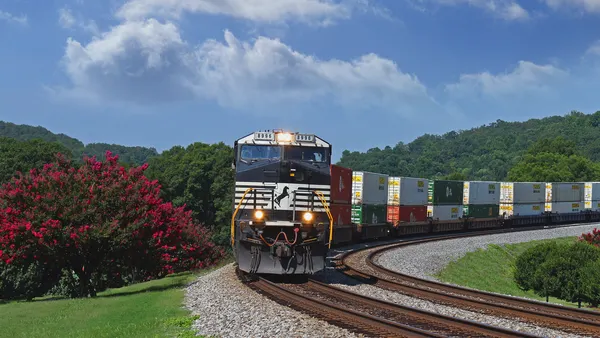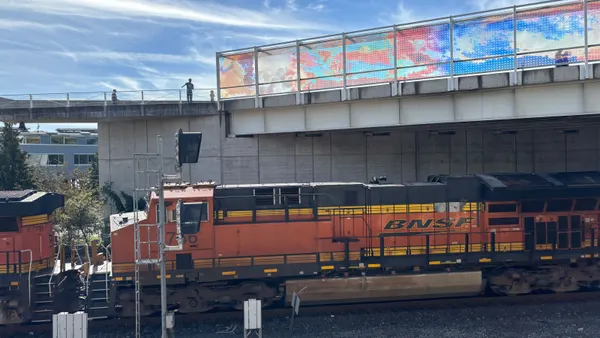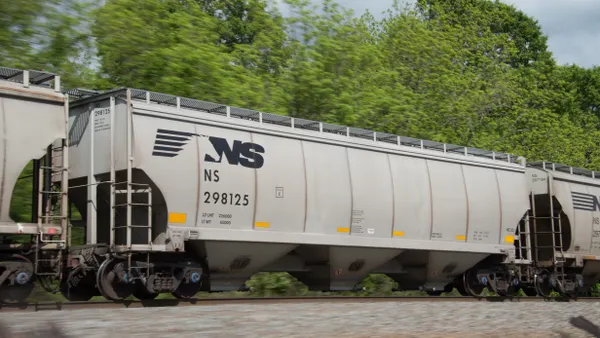Dive Brief:
- U.S. railroads originated 794,256 carloads in June 2020, a 22% year-over-year (YoY) decline, and 1,004,933 intermodal containers, a 6% YoY drop, according to the latest numbers from the Association of American Railroads (AAR).
- "June was a month in which the slow recovery process that began in early May, began to accelerate," AAR Senior Vice President John T. Gray said in a statement. Leading the way "upward was the intermodal business which, over the last two months, grew to match volumes last seen around the first of February. While all of these results are encouraging they will be much more robust if the current trend continues in the weeks following the July 4th holiday," he said.
- Motor vehicles and parts volume was still down compared to June 2019, sliding more than 30% YoY, according to AAR.
Dive Insight:
In a call with Cowen Analysts last month, Kansas City Southern (KCS) CEO Pat Ottensmeyer said the second quarter had been challenging. "But we do see signs of life in a number of key areas in our business portfolio," he said on a June 27 call with Cowen, adding that the company's volume and revenue were improving.
As new volume comes back onto the network, KCS is handling it with "minimal new train and crew starts," according to the company's presentation. The second quarter brought a 23% volume drop and 24% revenue decline.
The railroad's volume at the time of the call was about 8% below pre-pandemic levels, but has grown 31% since the bottom of the volume valley in early-May. For the month of June, the railroad's volume was down 39% YoY at the time of the call, Ottensmeyer said.
Union Pacific also said in early June it was beginning to see improvements to its volume.
KCS's intermodal began improving in June as automotive plants reopened and parts were exported to Mexico. But lackluster consumer demand is still a drag on overall volume. KCS executives didn't mention any impact from the U.S.-Mexico-Canada Agreement that took effect July 1, but said interest from shippers with an "Anywhere But China" strategy could be beneficial to its Mexico business going forward.
Automotive production was 11 times higher in June compared to May, but was still down more than 29% YoY in June. The Mexican Automotive Industry Association expects exports to fall 30% to 33% for 2020, according to Reuters. In mid-June General Motors CEO Mary Barra promised to return to full production by the end of the month. But with coronavirus cases on the uptick the company is facing some calls from a union in Texas to scale back production, according to The Detroit News.
KCS and the other Class I railroads have managed the volume downturn by reducing train and crew starts while increasing the average train length. The train length for KCS has grown 27% from January to June.
Earlier in June, KCS COO Jeffrey Songer said part of the company's goal was getting the cost-cutting measurers to stick going forward. So far the railroad is underscoring that it has been able to do this with its U.S. crew starts down 31% with volume down 9% compared to the first quarter of the year, according to slides presented during the call with analysts.
KCS also said customers were currently experiencing a lower total landed cost as a result low fuel surcharges.















